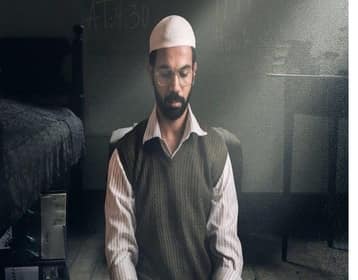Advertisement:
Noor Inayat Khan The Spy Princess - The Unsung Heroine Of World War 2 Who Had Her Roots In India
Date: 2018-06-22 17:48:16
This year, we were fortunate enough to watch the life of Sehmat in the movie Raazi unfold on the big screen and it made me think, how many other's like Sehmat still remain, whose stories have been buried under the mysteries of time?
WHO WAS THE SPY PRINCESS?
Noor Inayat Khan, have you ever heard her name? If your answer is 'no' then don't worry because you are part of the majority. Have you heard of the legendary Tipu Sultan? I am sure most of you have, at least I hope you do. Well, Noor was the descendant of Tipu Sultan and her father was of Indian descent while her mother was American.

Her father, Inayat Khan came from a noble Indian Muslim family and his mother was the descendant of the uncle of Tipu Sultan, the ruler of the Kingdom of Mysore. He met Noor's mother, Ora Ray Baker during his travels in the United States. She later changed her name to Pirani Ameena Begum. Inayat Khan lived in Europe as a musician and teacher of Sufism.
Noor was the eldest of 4 children and was born in the year 1914 in Moscow. Her siblings were Vilayat, Hidayat and Khair-un-nisa, all of whom lived a long life and died more or less recently. The family lived in France and their house was called 'Fazal Manzil' or the house of blessing.

As a child, she would write many poems and after her father's death in 1927, she took the responsibility of taking care of her grief-stricken mother and her younger siblings. She studied child psychology at Sorbonne and music at the Paris Conservatory. In 1939, her book 'Twenty Jataka tales' inspired by the Jataka tales of the Buddhist tradition was published.
HOW DID SHE BECOME A PART OF THE WW2?
Fate had other plans for this shy, sensitive and dreamy young girl. After the outbreak of the Second World War, when France was overrun by German troops, the family fled to Bordeaux and, from there by sea, to England, landing in Falmouth, Cornwall, on 22 June 1940.

Khan was recruited to join F (France) Section of the Special Operations Executive and in early February 1943 she was posted to the Air Ministry, and sent to Wanborough Manor, near Guildford in Surrey, after which she was sent to Aylesbury, in Buckinghamshire, for special training as a wireless operator in occupied territory.
She would be the first woman to be sent over in that capacity, all the woman agents before her having been sent as couriers.
DID SHE HAVE A HAPPY ENDING?

Inayat Khan was betrayed to the Germans, either by Henri Dericourt or Renee Garry. On or around 13 October 1943, Khan was arrested and interrogated at the SD Headquarters at 84 Avenue Foch in Paris. During that time, she attempted to escape twice. Hans Kieffer, the former head of the SD in Paris, testified after the war that she did not give the Gestapo a single piece of information but lied consistently.
AN UNFORTUNATE EXECUTION

Inayat Khan was abruptly transferred to Dachau concentration camp with fellow agents Yolande Beekman, Madeleine Damerment and Eliane Plewman, and at dawn on the following morning, 13 September, the four women were executed.
She was posthumously honored with the George Cross by the British government and the Croix de Guerre. Noor Inayat Khan is the first Asian woman to be commemorated in Britain with a memorial.

You see, Not all heroes wear capes.
Latest Stories.
©To Clap2Ram Media (TabloidXO™)
Trending Now
Advertisement:





























